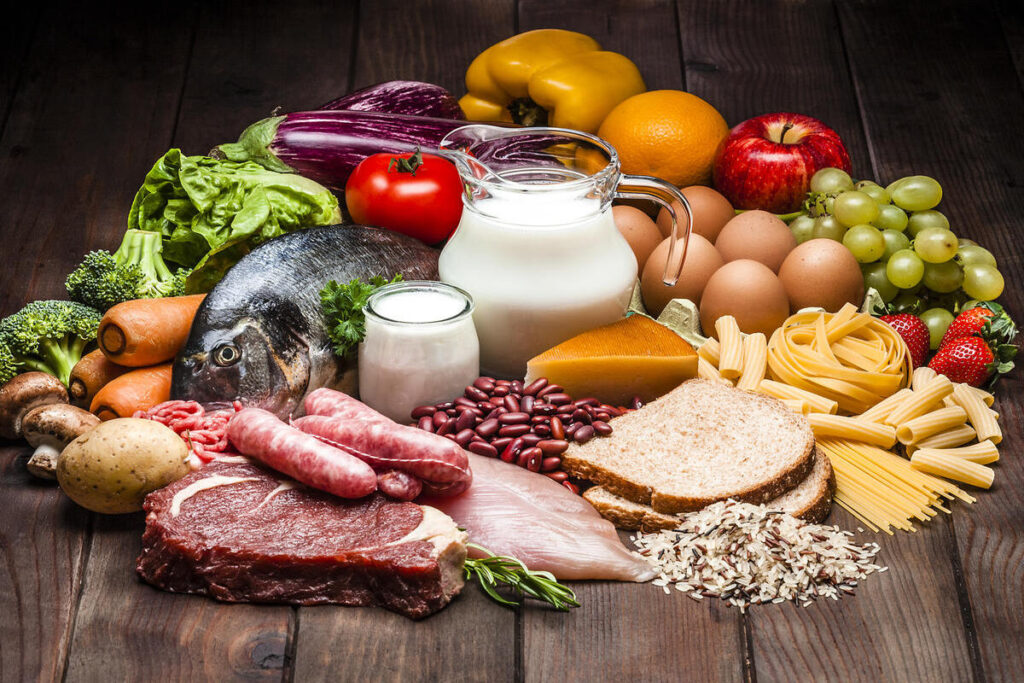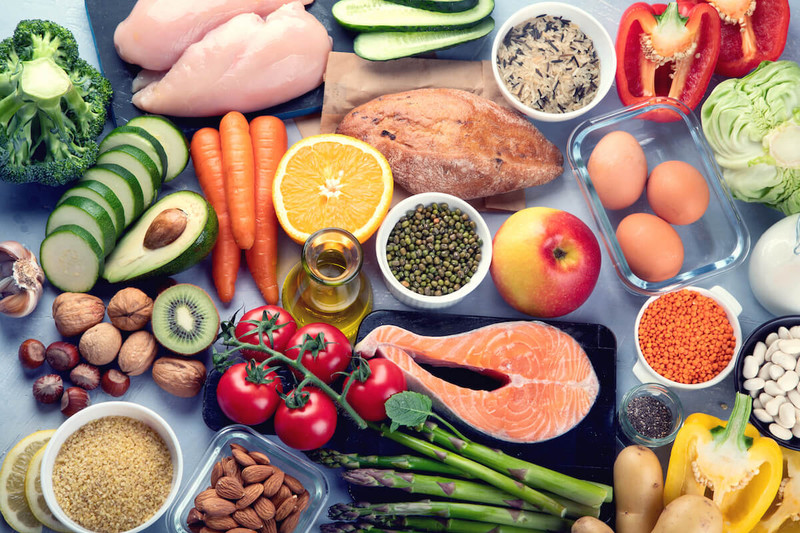Whether 2500 calories is a lot or not depends on various factors such as your age, sex, physical activity level, and overall health. For some people, especially those who are very active, 2500 calories might be just enough or even too little. However, for others, particularly those who lead a sedentary lifestyle, 2500 calories could lead to weight gain. It’s always best to consult with a healthcare provider or a registered dietitian for personalized advice on caloric intake.
What are Calories?
Calories are a measure of energy. They represent the amount of energy that foods and drinks provide when consumed. Our bodies need this energy to perform basic functions, such as breathing and circulating blood, as well as all the activities of daily life. Everything we do, from sleeping to running a marathon, requires energy, and that energy comes from the food we eat and the beverages we drink.
Caloric Intake Recommendations
The recommended daily caloric intake varies depending on several factors. Generally, it’s suggested that the average woman needs about 2000 calories per day, while the average man needs around 2500 calories.
However, these numbers can vary widely depending on factors like age, metabolism, and levels of physical activity. For example, an athlete or a person with a physically demanding job may require more calories than a sedentary person.
What Are The Factors Influencing Caloric Needs?

Activity Level
Active individuals, such as athletes or those with physically demanding jobs, generally require more calories to fuel their increased energy expenditure.
Sedentary individuals, with minimal physical activity, may need fewer calories to maintain their weight.
Metabolism
Metabolic rate varies among individuals. Factors like age, genetics, and body composition influence how efficiently the body burns calories.
As people age, metabolic rates tend to decline, potentially requiring adjustments to caloric intake to prevent weight gain.
Age
Caloric needs change with age. Children and teenagers often require more calories for growth and development.
Older adults may experience a decrease in metabolic rate, necessitating adjustments to prevent excess calorie consumption.
Sex
Men and women may have different caloric requirements due to variations in muscle mass, hormonal influences, and metabolic rates.
Women, especially during pregnancy and lactation, have increased energy needs.
Health Conditions
Certain medical conditions, such as thyroid disorders or metabolic diseases, can affect metabolism and, consequently, caloric needs.
Chronic conditions or medications may influence appetite and nutrient absorption, impacting overall caloric requirements.
Body Composition
Muscle mass burns more calories at rest than fat tissue. Individuals with higher muscle mass may have slightly higher caloric needs.
Changes in body composition, such as gaining or losing muscle, can affect metabolic demands.
Hormonal Factors
Hormones play a crucial role in regulating appetite and metabolism. Changes in hormone levels, such as insulin or cortisol, can impact caloric needs. Menstrual cycles in women may influence appetite and energy expenditure.
Genetics
Genetic factors contribute to variations in metabolism and energy utilization. Some individuals may naturally have a faster or slower metabolism, affecting how their bodies process and utilize calories.
Weight Goals
Individuals aiming for weight loss, maintenance, or gain will have different caloric needs. Weight loss requires a caloric deficit, while weight gain involves a caloric surplus.
Environmental Factors
Environmental conditions, such as extreme temperatures, can affect energy expenditure and, subsequently, caloric requirements.
Occupation and lifestyle, including physical activity at work or during leisure time, contribute to overall energy needs.
Effects of Consuming 2500 Calories Daily
The effects of consuming 2500 calories daily can vary. Some people may maintain their weight, others may lose weight, and some may gain weight. This is because the impact of caloric intake on weight depends not only on the number of calories consumed but also on the number of calories burned. It’s also important to note that not all calories are created equal. The source of the calories also matters. Calories from nutrient-dense foods like fruits and vegetables have a different impact on our health compared to calories from high-sugar or high-fat foods.
How to Calculate Daily Caloric Intake

Calculating your daily caloric intake involves a personalized assessment of various factors to determine the number of calories your body needs to maintain its current weight. Follow these steps for an estimate
Basic Information
Gather essential information such as age, sex, height, and current weight. These details provide the foundation for calculating your basal metabolic rate (BMR), which represents the calories your body needs at rest.
Activity Level
Assess your activity level using categories like sedentary, lightly active, moderately active, very active, or extremely active. This information helps determine your Total Daily Energy Expenditure (TDEE) by factoring in calories burned through daily activities and exercise.
Calculate BMR
Use established formulas like the Harris-Benedict equation or the Mifflin-St Jeor equation to calculate your BMR based on your basic information. These equations consider factors such as age, sex, height, and weight to estimate the calories your body requires at rest.
Determine TDEE
Multiply your BMR by the activity factor corresponding to your activity level. The result is your TDEE, representing the total calories your body needs daily, considering both basal metabolic rate and activity-related energy expenditure.
Adjust for Goals
If your goal is weight maintenance, your TDEE represents your target daily caloric intake. If you aim to lose weight, create a calorie deficit by consuming fewer calories than your TDEE. For weight gain, create a surplus by consuming more calories than your TDEE.
Monitor and Adjust
Track your progress and adjust your caloric intake as needed. Regularly reassess your weight and adjust your calorie goals based on changes in activity levels, metabolism, or overall health.
Adjusting Caloric Intake Based on Goals
If your goal is to lose weight, you’ll need to consume fewer calories than your body burns. Conversely, if you want to gain weight, you’ll need to consume more calories than your body uses. It’s recommended to consult with a healthcare provider or a registered dietitian before making significant changes to your diet or caloric intake.
FAQ
Is it OK to eat 2500 calories a day?
The appropriateness of consuming 2500 calories a day depends on individual factors such as age, sex, activity level, and health goals. For some, it may be suitable for maintenance, while for others, it might lead to weight loss or gain.
Is 2500 calories good for bulking?
Yes, consuming 2500 calories a day can be suitable for bulking, especially for individuals with higher caloric needs due to intense physical activity or muscle-building goals. Adjustments may be necessary based on individual responses and progress.
Is 3k calories a day a lot?
Whether 3000 calories a day is a lot depends on factors like metabolism, activity level, and weight goals. It might be appropriate for those with high energy requirements, such as athletes, but for sedentary individuals, it could lead to excess calorie intake.
Is 4000 calories a day a lot?
Eating 4000 calories a day is considered a high intake and may be suitable for individuals with intense physical activity or those aiming for significant muscle growth. However, for most people, this could lead to excessive calorie consumption and potential weight gain.
Is 5000 calories a day OK?
Consuming 5000 calories a day is generally not recommended for the average person, as it is a very high intake that could lead to health issues. Such calorie levels are often unnecessary and may result in weight gain and related complications.
Can I eat 10,000 calories a day?
Eating 10,000 calories a day is excessive and not recommended for most individuals. This extremely high intake can lead to severe health consequences, including obesity and related conditions. It is crucial to prioritize balanced and nutritious eating habits.
Is 1k calories a day too much?
Eating only 1000 calories a day is considered very low and may not provide sufficient nutrients for most individuals. Such a restrictive intake can lead to nutrient deficiencies, fatigue, and negatively impact overall health.
What if I eat 500 calories a day?
Consuming only 500 calories a day is dangerously low and can lead to severe health risks. This level of caloric restriction may result in malnutrition, muscle loss, and other adverse effects. It is crucial to prioritize a balanced and sustainable approach to eating for overall well-being.
Final thoughts
In conclusion, whether 2500 calories is a lot depends on individual factors and goals. Understanding your personal caloric needs and how different factors influence them can help you make informed decisions about your diet and health.
Remember, it’s not just about the number of calories, but also about the quality of the calories you consume. A balanced diet rich in fruits, vegetables, lean proteins, and whole grains can help ensure you get the nutrients you need while managing your caloric intake.

